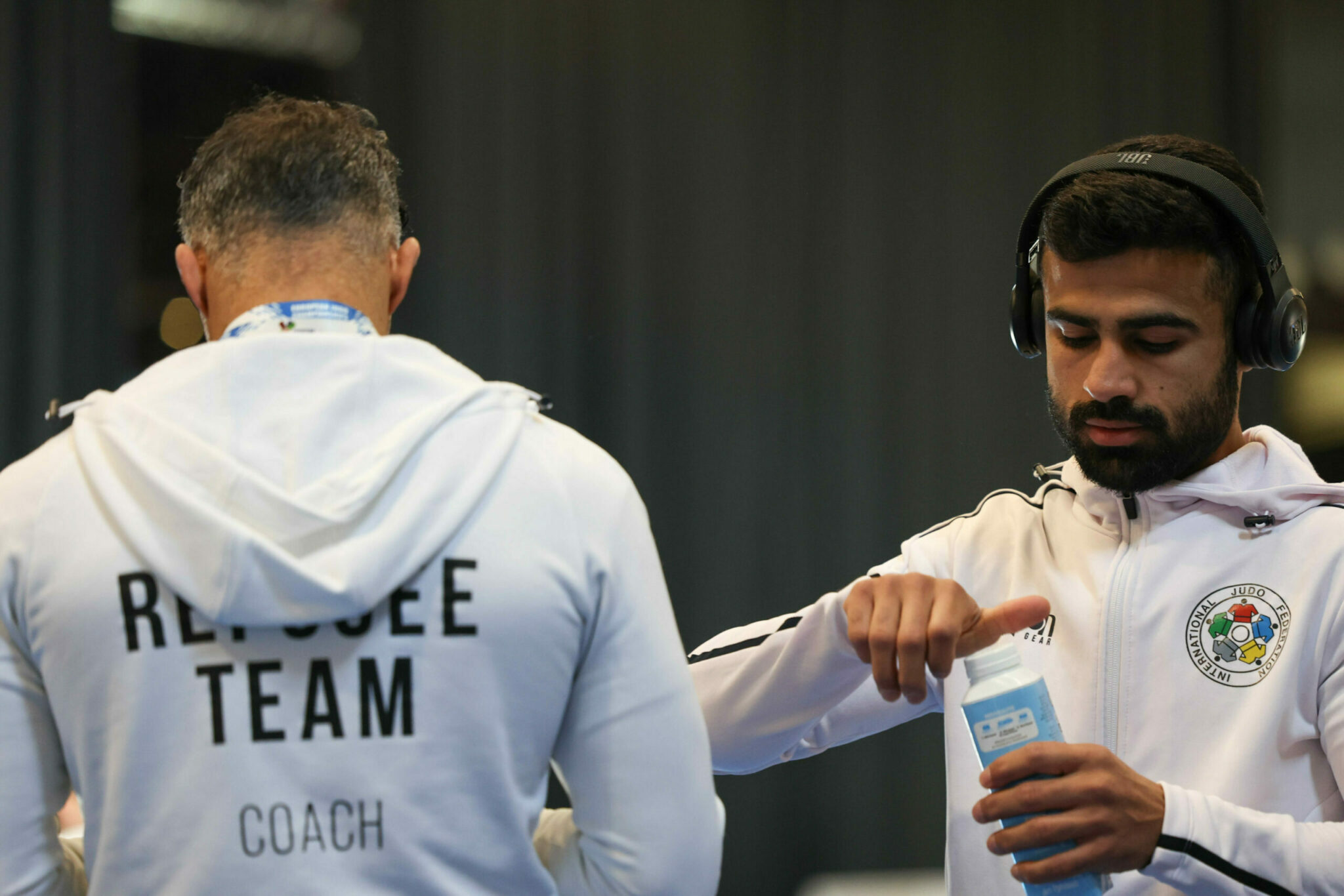Admittedly, the first day of the European Championships could have gone better for the IJF Refugee Team: Two fights, two defeats, total fight time: 1:54 minutes. Muna DAHOUK (-57/, born in Syria, now living in the Netherlands) lost with a hold, Mohammad RASHNONEZHAD (-60/ from Iran) was disqualified/Hansoku-make (after three shidos). But coach Vahid SARLAK, formerly an Iranian refugee himself and now a judo coach and German citizen, was still smiling: “If my protégés are allowed to fight, that’s already a success. Sometimes they fail to make the journey, they are not allowed into the country at all. But the IJF is doing its best to ensure that this happens less and less,” says Vahid.
For the first time in the history of the European Judo Championships, a six-member IJF Refugee Team is taking part. They all come from crisis areas (such as Afghanistan, Beirut, Iran and Syria) and have found a new and safe home in European countries (GER, NED, SCO). They train judo twice a day and travel to international competitions as often as possible – with the aim of being fully prepared for Paris 2024 next year. They will compete there in singles and as a mixed team. “These athletes are like children to me, it’s nice to see how good judo is for them and the role of being part of the IJF Refugee Team. I was a refugee myself and can empathise with the difficult times they have had. As a team, we have grown together a lot in recent months. The progress of each individual is impressive.”
Muna and Mohammad had secretly hoped for more for their European Championship debut. “I’m sad to have lost so quickly. I was incredibly nervous today,” said the 27-year-old. Her father Ahmad was a judo coach and she first stood on the mat at the age of five. After his death, she lost sight of judo – for twelve years. Since living in the Netherlands, in s’Hertogenbosch, she has found her way back into normal life via judo. “What I miss is the competition practice. I’ve been to seven tournaments this year. A hall with 3,000 spectators is still very unfamiliar, as is having to warm up next to World champions and Olympic champions.”
Team-mate Mohammad, 28, already has plenty of competition experience from Iran. He won 14 national medals and was crowned Asian champion. In 2019, he finished third at the European Cup in Malaga. Mohammad has been living as a refugee in Arnhem (NED) since 2020. He celebrated two victories at the 2022 World Championships in Tashkent (KAZ) before being defeated by world champion Francisco GARRIGOS (ESP). On Friday afternoon in Montpellier, he was eliminated in round one against his Dutch training partner Tornike TSJAKADOEA. Coach Vahid Sarlak: “We don’t need to worry about Mohammad. He will come back and win more medals.”
Author: EJU Media




